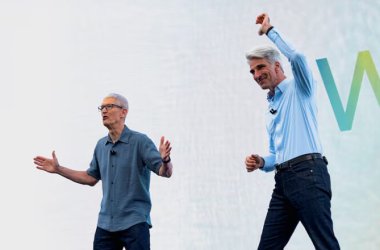 iHub Nairobi, a tech incubator, is set to become home to the second supercomputer in Africa, targeting mobile developers, gamers, universities and research institutions.
iHub Nairobi, a tech incubator, is set to become home to the second supercomputer in Africa, targeting mobile developers, gamers, universities and research institutions.
South Africa hosts the first supercomputer in Africa, which is listed as number 497 in the top 500 list of supercomputers as of last month. The “Tsessebe cluster” in Cape Town is CPU-based while “the iHub cluster” will be based on a hybrid mix of CPUs (central processing units) and GPUs (graphic processing units).
“With mobile devices coming in multiple cores, it is important for developers to be exposed to higher performance computing; we are hoping to debut at a higher level than ‘Tsessebe cluster’ given that ours is a hybrid,” said Jimmy Gitonga, the project team leader for the iHub cluster.
One of the main challenges in Africa is the lack of supercomputing capacity, and the iHub project hopes to work with universities and colleges to expose students to higher-level research in the fields of media, pharmaceuticals and biomedical engineering.
The project is supported by Google and Intel and is starting to build out the first four nodes of the cluster. The cluster will have 24 nodes and is expecting to achieve 75 teraflops, (one trillion floating point calculations or operations per second), offering the best price-for-performance computing facility in Africa.
“The need to compute parallel will increase especially once mobile devices having multicore chips becomes the norm,” said Gitonga. “In Africa, we need to be on top of the mobile scene, its our widest used device, HPC will serve the growing needs of mobile developers.”
To support the initial work on the four nodes, Google and Intel have brought in technical team members to assist in the assembly.
“The iHub submitted a proposal to us for the supercomputer facility and we thought this would be a worthwhile infrastructure investment for them to roll out as part of the facilities they offer to iHub members,” said Johanna Kollar, StartUp Support in Emerging Markets at Google.
Gitonga feels that the iHub cluster will be of great importance in the East and Horn of Africa region where developers and scientists are working hard to develop solutions in weather prediction, draught prediction and real-time information dispatch and sort out the perennial drought and famine problems in the region.
“Most of the United Nations agencies and international agencies operating in the region have extensive field research on how to tackle natural disasters in the region, imagine if they had affordable space where they can meet with developers and test resource-hungry applications,” Gitonga added.
Apart from the local tech and scientific community, the iHub cluster is also targeting the wider Sub Saharan market, offering more affordable research services to organisations and agencies that have had to seek similar services abroad.





